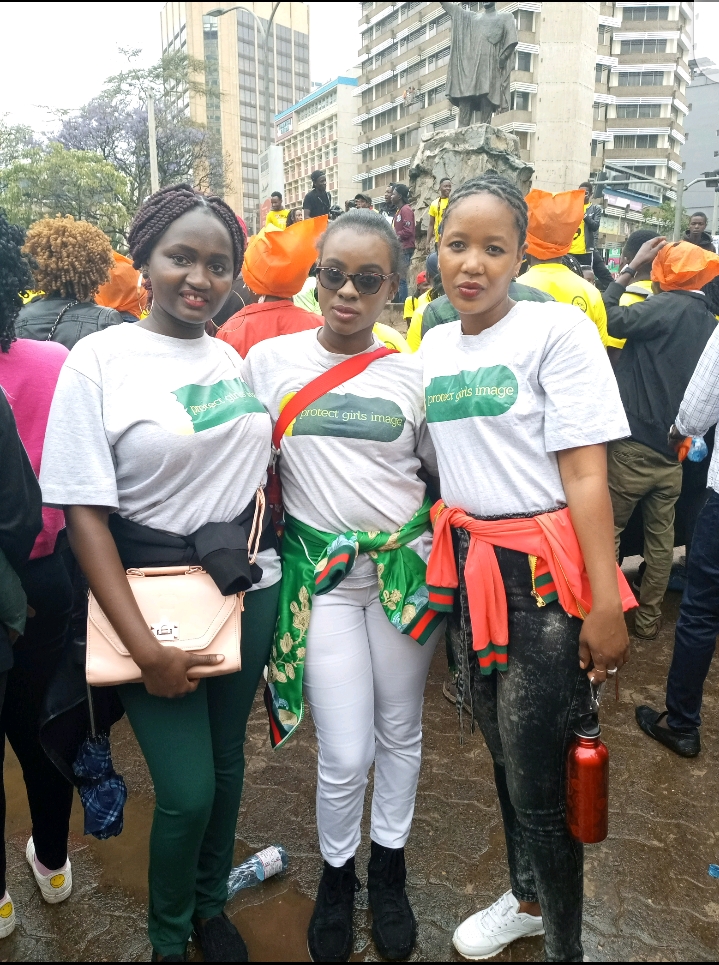Effects of Poverty on Education in Kirinyaga County- Kenya.
Juliet Wanja, Doreen Karimi and Christine Wanjiru are all 15 year old girls who are not sure if they will join High School in 2020 due to lack of school fees. This is a reality for thousands of children in Kenya right now. Currently, the Kenyan primary education is free but still regular school attendance is a challenge mainly due to low family incomes.
For instance, over 1.2 million children of school-going age are out of school and involved in practices such as child labor to supplement family income. There is also a 27% primary school dropout rate related to poverty issues. Imagine having these challenges in primary education. We find that fewer children are enrolled in secondary school, with only about a 40% enrollment rate.
Ending poverty in all of its form everywhere is crucial to achieving sustainable development in the world. We encourage various stakeholders to invest in education of our Beneficiaries because there is a lot to be gained in terms of poverty alleviation since poverty is a challenge to education.
It’s a bit ironic that we are fighting for our children to go to school while at the same time, our poor quality education is another one of the causes of poverty in Kenya. A high number of children are cramped together in classrooms, there are minimal teaching materials and each class has a single teacher.
With a poor teacher to student ratio, children who learn differently end up getting left behind because the teacher does not have a chance to serve each child individually. Those children who are left behind remain enrolled in school until they can catch up, adding to the amount of resources needed, since there is not an even ratio of new students to graduated students.
However, Protect a Girls’ Image Organization believes that education has a direct correlation with income. The higher the level of education, the less likely the person is to fall below poverty line.
Educating girls in particular makes them more likely to take control of decisions relating to fertility, family welfare, health. This means that education is not just a need but a tool to alleviate poverty.
With Donations from well wishers like you in place this shouldn’t be a problem. It seems simple enough – at least on the face of it. Every child in our care between the ages of six and 17 has the right to compulsory education and this cannot happen without your kind donations.
Have you seen our latest Fundraising Campaign for School Fees for our 40 children in our care? Click Here>>> https://t.co/rFenbUMW4w
What is the right to education?
Education is a basic human right for all and is important for everyone to make the most of their lives. Other human rights include the right to freedom from slavery or torture and to a fair trial.
Having an education helps people to access all of their other human rights. Education improves an individual’s chances in life and helps to tackle poverty.
Why does it matter?
Education reduces poverty, decreases social inequalities, empowers children and helps each individual reach their full potential.
It also brings significant economic returns for a country and helps societies to achieve lasting peace and sustainable development. Education is key to achieving all other human rights.
Education that targets poor populations like where our children live will bring change to many of the systemic factors that have contributed to the delay in poor communities’ development. Education can prevent the transmission of poverty between generations. Education also has documented effect on health, nutrition, economic development and on environmental protection (UNESCO 2104: Sustainable development begins with education).
Our goal in 2020 is to make sure all our children are enrolled in school with all the supplies which include ( school fees, a school bag, books, and writing materials)
Despite great progress we have made this year, 12 out of our 40 children are still not enrolled in school.
Would you like to help one of these children to be enrolled in school? We will be so grateful if you Give trough this link>>>>>> https://t.co/rFenbUMW4w
REASONS WHY YOU SHOULD INVEST IN A CHILD’S EDUCATION.
Investing in Education yields significant development benefits.
Education reduces poverty, boosts economic growth and increases income. It increases a person’s chances of having a healthy life, reduces maternal deaths, and combats diseases such as HIV and AIDS. Education can promote gender equality, reduce child marriage, and promote peace. In sum, education is one of the most important investments a country can make in its people and its future.
Education is essential to the success of every one of the 17 global goals.
Formally adopted at the UN General Assembly in September 2015, the Global Goals for Sustainable Development frame the global development agenda for 2016-2030. The Global Goal 4 on education aims to “ensure inclusive and equitable quality education and promote lifelong learning opportunities for all.”
Education is Critical during times of conflict.
In times of conflict and crisis, children are forced out of school, which contributes to higher drop-out rates and lower completion rates. Having a strong focus on education in these countries is critical, since education promotes stability, good governance, and peace. It can also provide a visible sign of a return to normalcy for children.
A Poor quality education is almost like no education.
Great progress has been achieved in enrolling children in school around the world. But it’s not enough to get children in school, we also need to ensure that they learn to read, count, and acquire the necessary life skills. A special focus has to be given to the most vulnerable and marginalized groups (including children living in fragile and conflict affected areas, children with disabilities and girls) who are most likely to be affected because of a lack of well-trained teachers, inadequate learning materials, and unsuitable education infrastructure.
Achieving the Global Goal for education by 2030 cost US $1.25 a day per child in Developing countries.
It costs on average US $1.25 a day per child in developing countries (low and lower-middle income) to provide a full cycle of pre-primary through secondary education (13 years). The largest share of this cost, 88%, is borne by the developing countries themselves. The international community should help in filling the funding gap of just 15 cents a day per child.
Education has a multiplier effect.
Educated girls and women tend to be healthier, have fewer children, earn more income and provide better health care for themselves and their future children. These benefits also are transmitted from generation to generation and across communities at large, making girls’ education one of the best investments a country can make.
Children with disabilities are often excluded from education systems.
In many countries, a combination of discrimination, social attitudes, poverty, lack of political will, and poor quality of human and material resources leave children with disabilities more vulnerable to being excluded from education. It is essential that societies adapt their education systems to ensure that these children can enjoy their basic human right without discrimination of any kind.
Early childhood education is vital to lifelong success.
Investing in quality early childhood education brings the highest returns from individuals, societies and countries. Children who have access to quality early childhood programs do better in primary school and will have better education outcomes later. It is vital that low and lower middle-income countries invest more in affordable early childhood programs.
Read More: Operation: Help Send our 17 boys and 23 girls back to School in 2020.
Skills that Fathers should teach their 13 year old Daughters in 2020.

